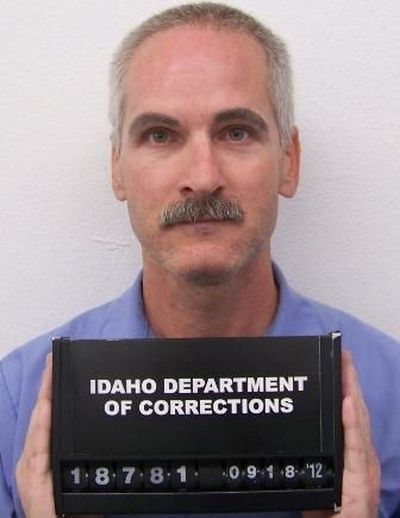Idaho inmate fraud artist takes plea deal

BOISE – The Idaho prison inmate who carried out elaborate con schemes from behind bars pleaded guilty today to two federal counts of mail fraud under a deal that enables him to avoid trial on a 12-count indictment.
Inmate Mark Brown also must forfeit $60,000 in banked proceeds from his unprecedented scams and surrender the cherished electric typewriter he used to carry out the financial schemes, which duped big corporations, courts and attorneys around the nation over a period of several years.
Senior U.S. District Judge Justin Quackenbush expressed some puzzlement about Brown’s crimes. “How’d you get involved in all this, Mr. Brown?” he asked him. “Just tell me how it got started.”
Brown responded with a nervous chuckle, “Um, the idea just popped in my head.”
Quackenbush, who was the chief judge for the Eastern District of Washington until 1995, when he took senior status, responded, “Well, people in custody ordinarily aren’t filing claims. I’ve handled a lot of class actions in my years on this federal bench … and approved a lot of settlements. … How’d you get started in the filing of false claims?”
Brown, 54, said, “Uh, it was my view that if a claim was filed, even if it was false, there was a small percentage chance that it would be paid.” When the judge pressed him as to how he heard about the big class-action legal settlements and bankruptcy and security settlements in which he filed claims, Brown said, “Well, I read the newspapers and watch TV.”
“What newspapers were you reading – the Wall Street Journal?” the judge asked. “Oh, yes,” Brown replied.
The plea agreement could bring Brown a slightly reduced sentence, though that’s not binding on the court; Quackenbush set his sentencing for Nov. 13.
Brown, who’s spent most of his adult life in prison and was a promising University of Idaho computer science student – and serial burglar - before he was first incarcerated age 23, pulled off a scam from behind bars that astounded authorities. He typed up professional looking legal documents, false letters from law firms and more, and made skillful use of the “legal mail” exception for inmates that lets their correspondence with their attorneys and courts over their appeals and the like go unread by prison guards.
Court documents show Brown’s scam extended from at least 2007 to 2012. In 2011, Cpl. Wesley Heckathorn, a former Navy investigator working as a guard at the Idaho State Correctional Institution at Orofino, became suspicious, and the scheme was uncovered.
During the time he was sending false claims and receiving big checks, which he deposited in his prison trust account or sent off to an investment account, Brown was serving time in various Idaho and out-of-state prisons operated either by the state or the Corrections Corporation of America.
Assistant U.S. Attorney Kevin Maloney said the plea agreement and voluntary forfeiture means the government will save substantial trial costs, plus be able to recover the proceeds of the crime up front and return them to the victims.
“That’s the real advantage of this plea,” he said. “We’ll be able to return the money to these class actions.”
He added, “And now everyone is aware of what he was doing, so the (Corrections) Department will keep an eye on him, I would expect.”
Brown is currently serving a state sentence for burglary, grand theft and possession of stolen property that runs through 2043, but he’s eligible for parole in 2019. The two federal mail fraud charges each carry a maximum sentence of up to 20 years, but under federal sentencing guidelines, his guilty plea, the dollar amount of the crimes, the number of victims and his criminal history make an additional sentence of about two years on each count more likely.
Federal guidelines say an inmate who commits a crime while in state custody must serve his federal sentence after his state sentence is completed, rather than concurrently, but a final decision on that is up to the judge.